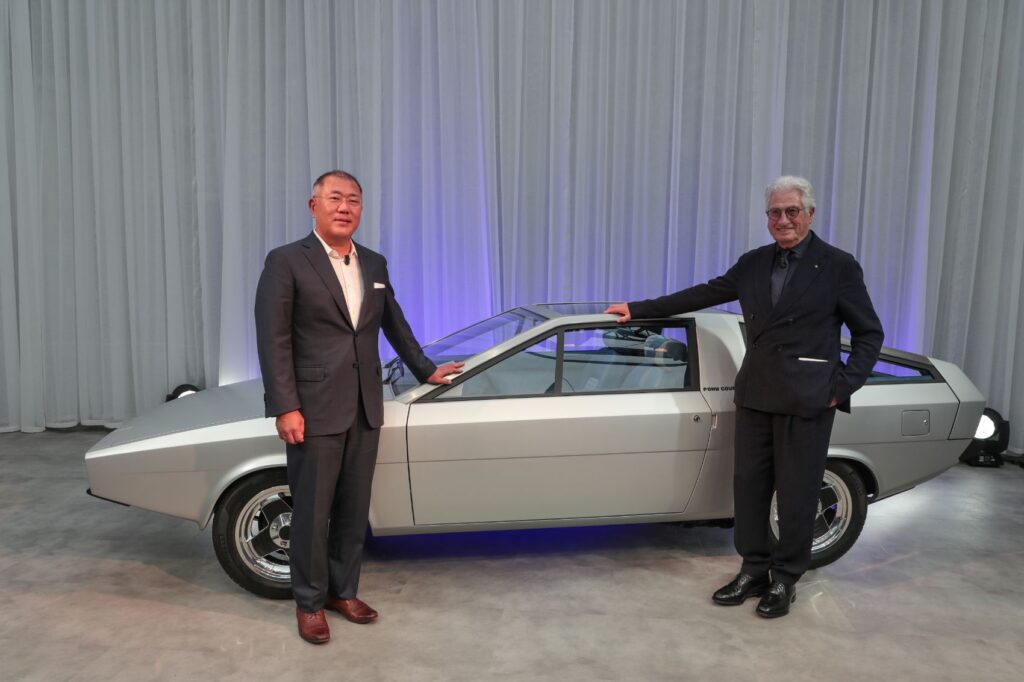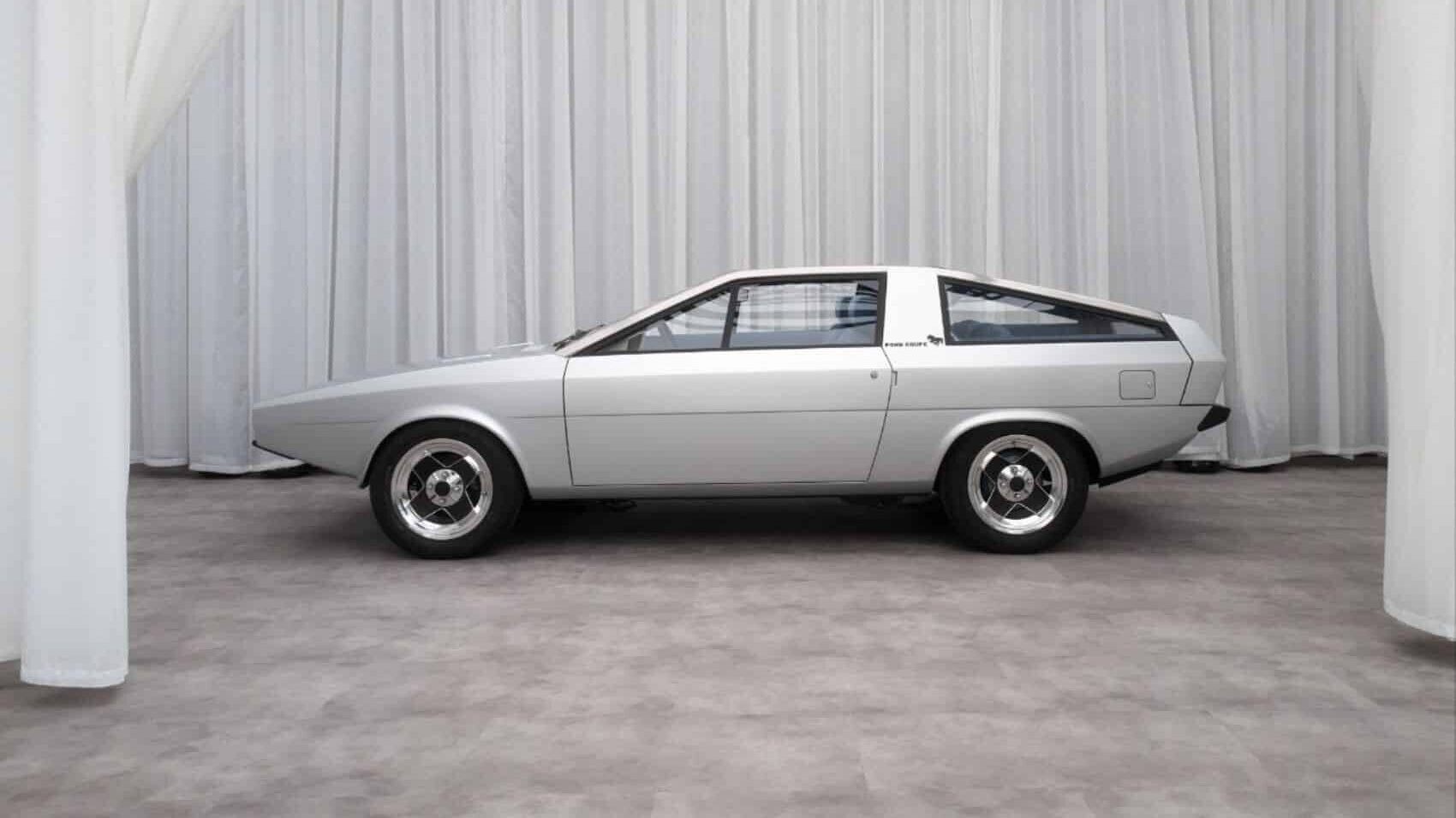The Hyundai Motor Company was born in 1967, but its first car wasn’t a Hyundai but a Ford Cortina. Seven years later, the automaker developed its first official production car, the Hyundai Pony, South Korea’s first mass-produced and exported vehicle. The Pony is a rear-wheel-drive compact car in sedan, liftback, coupe, or pickup body styles. Hyundai began importing the fruit of its labor to other countries like Argentina, Chile, Greece, Belgium, and the Netherlands by 1979.
However, the production Pony first debuted as a concept at the 1974 Turin Motor Show. The Hyundai Pony Coupe was supposed to be the brand’s first-ever high-performance car, but the stars had other plans. Yet, it’s no wonder the Pony became a hit: it’s a mishmash of Italian styling, British engineering, Japanese hardware, and South Korean values. The automotive world might even be different if the actual Hyundai Pony Coupe Concept had made the assembly lines.
Then again, the concept did make it to production, but not as a Hyundai. Instead, when the South Korean automaker decided to shelve the Pony Coupe concept, the design, a heavily reconfigured silhouette with a wedge-like profile, was sold to a small carmaker called the DeLorean Motor Company (DMC). And it went on to become the cult classic DMC-12.
Hyundai Pony Coupe Lives Again
Hyundai Motor unveiled the rebuilt Pony Coupe Concept at the inaugural Hyundai Reunion on May 19th, 2023. The event was held at the historic Villa Pliniana in Lake Como, Italy. The event brought together former and present Hyundai engineers and designers to commemorate the restoration of the 1974 concept car that led to the creation of the brand’s Pony lineup, Korea’s first independently developed mass-production models.
Hyundai Motor collaborated with Italian design firm GFG Style, notably its father and son founders Giorgetto and Fabrizio Giugiaro to rebuild the 1974 Pony Coupe Concept that young Giorgetto created for Hyundai’s debut at the 1974 Turin Motor Show. The iconic Giorgetto Giugiaro, the man behind the Pony Coupe’s retro-futuristic vibe, was also the progenitor of other automotive greats like the Alfa Romeo 155 Coupe, Ferrari 250 GT, and the VW Golf Mk1.
“I’m proud and honored to witness how this company has evolved since we first met,” Giugiaro said. “We were all impressed by the passion and commitment of Hyundai engineers.”
Giugiaro and the rest of the crew “faithfully recreated to exacting specifications” the original concept that debuted 50 years ago, including all the original materials from the first build. There’s something eye-catching about vintage cars, with their fearless design idioms and minimalist interior layouts, and the Hyundai Pony Coupe is no different.
From its four-eye round headlights, wedge nose, and “coda tronca” or cut-off tail design to its sleek silhouette reminiscent of the 1970s-era Mitsubishi Celeste, the original Pony Coupe’s spirit lives on in future Hyundai models.

Hyundai Pony Coupe: Inspiring The EV Generation
Hyundai was the first to admit that its latest “rolling laboratory,” the N Vision 74 hydrogen-electric car, drew inspiration from the Pony’s DNA, and it shows with the concept’s four digital headlight designs, wedge-shaped nose, and liftback rear end. The N Vision 74 is an evolution of the EVs we know today with two electric motors, a 62.4 kWh T-shaped battery pack, and two hydrogen storage tanks that could perpetually eliminate range anxiety.
Despite its clean-burning, zero-emissions powertrain, the N Vision 74 has enough power to make the original Pony green with envy. Those two electric motors could propel the concept from zero to 60 mph in four seconds, thanks to 588 horsepower and 664 lb-ft. of torque. The range is about 373 miles on a full tank of hydrogen, not bad for a sports car.
“In the age of electrification, a key condition for Hyundai Motor Company to become a leader in future mobility will be our ability to remain faithful to the shakeable values we inherited,” said Jaehoon Chang, President and CEO of Hyundai Motor Company. “We will continue leveraging our past as a unique vector for future innovation.”
Hyundai said its newly launched Reunion events would serve as a “brand platform” to further share the automaker’s vision and direction.
Alvin Reyes is an Automoblog feature columnist and an expert in sports and performance cars. He studied civil aviation, aeronautics, and accountancy in his younger years and is still very much smitten to his former Lancer GSR and Galant SS. He also likes fried chicken, music, and herbal medicine.
Photos & Source: Hyundai Motor Company.






